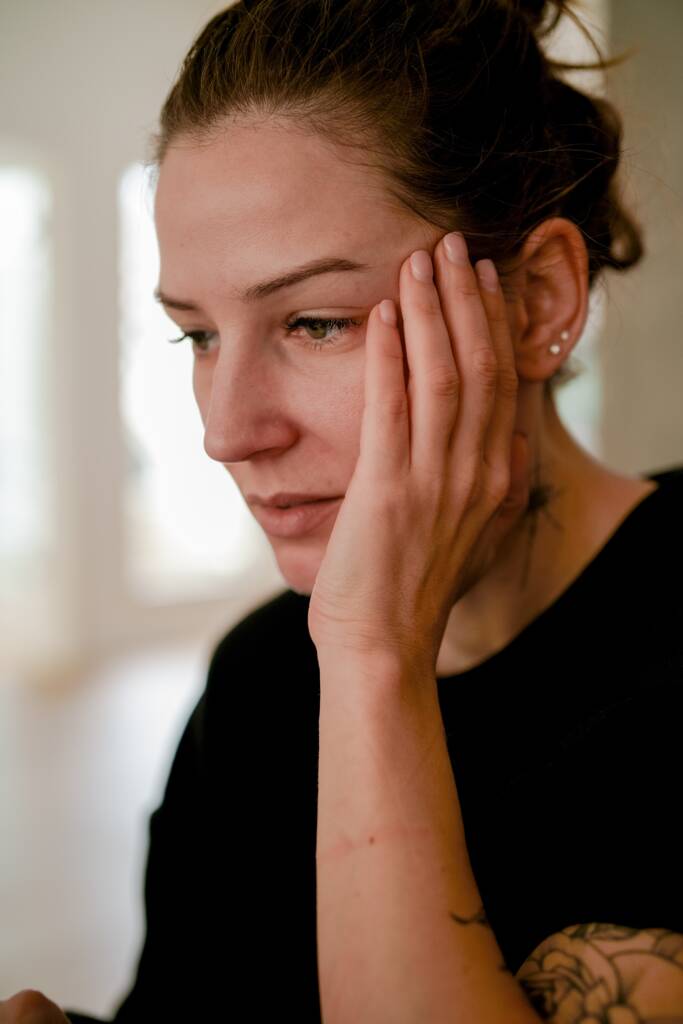Romina has extensive experience working with individuals who suffer from Anxiety Disorders. Anxiety is a normal healthy emotion people experience when they are stressed or in danger. Feelings of anxiety can result from life experiences such as job loss, relationship breakdown, serious illness, major accident, and or death.
Feeling anxious in these situations is appropriate and usually, we feel anxious for only a limited time. Because feelings of anxiety are a normal part of life, it is important that we understand the difference between feeling anxious in an appropriate situation and an anxiety disorder.
Anxiety Disorders affect the way people think, feel, and behave and if not treated can interfere with a person’s daily life.


There are several types of Anxiety Disorders. They include:
Generalised Anxiety Disorder
Those individuals living with Generalised Anxiety Disorder (GAD) experience persistent, uncontrollable and excessive worries about a number of different things such as work, finances, performance, health and family. GAD can impact individual’s relationships, psychological wellbeing and work performance. Individuals with GAD also experience psychological and physical symptoms. These symptoms may include; excessive worry, having trouble controlling worry, difficulty concentrating, difficulty falling or staying asleep, feeling on edge, tiredness, feeling tense and irritable, feeling restless and nausea.


Obsessive Compulsive Disorder
Individuals with Obsessive Compulsive Disorder (OCD) experience unwanted intrusive distressing thoughts, images or impulses these are known as obsessions and can often engage in repetitive rituals also known as compulsion to feel better. Obsessions are often exaggerations of everyday common worries such as germs, sickness, checking doors, driving safely, neatness, distressing images of death and destruction and images of a sexual nature.
Compulsions are often repetitive actions performed to prevent an obsessive fear from actually happening. Common compulsions include; cleaning, checking doors, oven, lining things up, counting and repetitive behaviour.
If you feel you are displaying any of the above symptoms please see your general practitioner.

Panic Disorder and Agoraphobia
A Panic Attack can be characterised by sudden onset of intense fear that triggers severe physical symptoms when in actual fact there is no danger. Symptoms may include trembling, shaking, shortness of breath, pounding heart, dizziness, headaches and nausea. It is common, when individuals experience a panic attack they may experience thoughts of dying, fainting or even thoughts that they are experiencing a heart, go crazy or even do something embarrassing.
Usually individuals that suffer from panic attacks become avoidant because they do not want to have another panic attack. When an individual gets stuck into the pattern of avoidance they become Agoraphobic that is, avoiding any place which would be difficult to leave or get help, for example, shopping centres, tunnels and trains.


Social Anxiety Disorder
Most of us feel awkward in at least social situations, especially if you are going to be in the spotlight such as presenting in a meeting. It is normal for individuals to feel shy, nervous or uncomfortable in a situation where you might be judged, like an interview, starting a new job or meeting your partners parents. Most of the time this anxiety settles.
Social Anxiety is characterised by persistent fear of been judged by other people. Individuals with social anxiety tend to worry about embarrassing or humiliating themselves. They tend to see themselves as strangle, stupid, or flawed in some way. They also worry about showing physical symptoms like sweating or blushing. As a result, social anxiety has a significant impact on individual’s self-esteem, confidence and psychological wellbeing.


Health Anxiety
To worry about your health is a totally normal. However, there is a difference between having general health concern and being preoccupied with your health. Health anxiety is characterised by intense and persistent worry that triggers your anxiety fight or flight response.
Health anxiety can exist in normally healthy individuals, or individuals that are experiencing real yet unexplained medical symptoms and also in individuals who have a diagnosed medical condition such as cancer.
It is important to understand that having health anxiety, the issue is not whether the symptoms are real or not but how the individual responds and copes. If you respond to health issues or symptoms with excessive worry, reassurance seeking or avoidance, then it may be a good idea to see your general practitioner. Some of the common health related fears include having a heart attack, having or developing cancer, developing multiple sclerosis or having a mental illness such as Bipolar or Schizophrenia.


It is important to remember that if you do have some of the mentioned symptoms above, it does not necessarily mean that you have an Anxiety Disorder.
Romina sees a lot of patients that may be experiencing mild symptoms of anxiety and find counselling very helpful. Remember that it is human nature to try and fix our problems ourselves. However, please don’t suffer and be brave and seek help and live a happy and fulfilling life.


